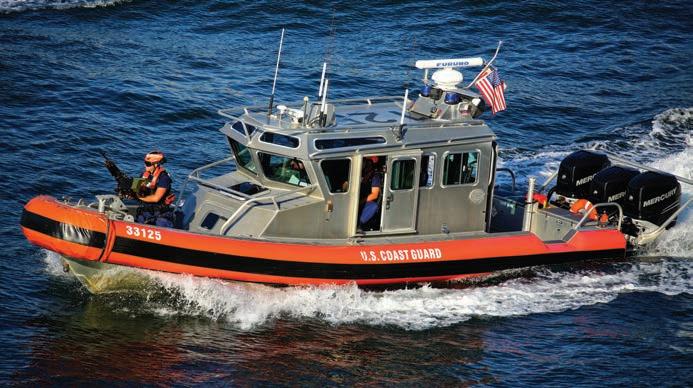UPDATE
Alfa Laval and Wallenius Aim to Put Wings on Car Carrier Though designed for wind propulsion, the Oceanbird technology has more in common with modern aircraft than traditional sailing vessels.
Transatlantic Car Carrier The technology will be valid for any vessel type, but it will be implemented first on a transatlantic car carrier. Able to carry 7,000 cars, the vessel will be 200 meters long and will cross the Atlantic in 12 days when sailing at an average speed of 10 knots. “Wind has a key role to play in decarbonizing the marine industry,” says Peter Nielsen, business unit president, Alfa Laval 8 Marine Log // July 2021
Marine Division. “Together with Wallenius, we will harness this abundant natural force to meet both climate needs and those of maritime business.” “Oceanbird wing sail technology will be not only an elegant solution, but also a powerful driver of positive change,” says Per Tunell, COO Wallenius Marine and future Managing Director of newly formed joint venture company AlfaWall Oceanbird. “The wing sails are up to 80 meters tall and have a telescopic construction,” says Nielsen. “Besides adjusting to catch the wind, they can be lowered to pass under bridges, to handle harsh weather conditions or for maintenance. Because they will interact with the hull in a sophisticated way, they will also require intelligent control.” While IMO has set a goal of cutting CO2 emissions from international shipping by 40% by 2030, Alfa Laval and Wallenius are committing to decarbonization targets beyond these levels, as, they say, are many other companies and a range of countries. “We cannot wait until the end of the century to phase out fossil fuels,” says Tunell. “We must create realistic alternatives, including the infrastructure for delivering and supporting them. Wallenius is committed to wind propulsion, and we know from the experience with PureBallast that Alfa Laval can help us make it a global reality.”
“Alfa Laval has supported the marine industry’s evolution for more than 100 years, but today there is new urgency,” says Nielsen. “Wallenius shares our environmental momentum and the determination to find immediate, workable solutions. Having once helped us explore our planet, wind can now help us rescue it.” Wallenius Marine has early 800 employees, with two ship management offices in Stockholm and Singapore. Since 1934, the company has designed and built more than 70 vessels since the mid-‘90s with a strong focus on sustainable shipping.
Photo Credit: Alfa Laval/Wallenius
A NEW 50/50 JOINT VENTURE
between Alfa Laval and Wallenius is to focus on the development and realization of technology for fully wind-powered vessel propulsion, specifically the Oceanbird telescopic wing sail. Alfa Laval and Wallenius have partnered before on developing groundbreaking technology. They collaborated previously on PureBallast, which has become one of today’s leading solutions for ballast water treatment. Though designed for wind propulsion, the Oceanbird technology has more in common with modern aircraft than traditional sailing vessels. It comprises an array of rigid wing sails, built from steel and composite materials, that generate forward movement instead of vertical lift. These wing sails will be able to turn 360 degrees to make optimal use of the wind.







